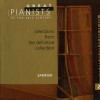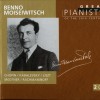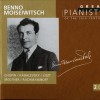| Voice/Instrument: | Pianoforte |
Biography
Benno Moiseiwitsch CBE (22 February 1890 – 9 April 1963) was a Ukrainian-born British pianist.
Born in Odessa, Ukraine, Moiseiwitsch began his studies at age seven at the Odessa Music Academy. He won the Anton Rubinstein Prize when he was just nine years old. He later took lessons from Theodor Leschetizky in Vienna. He first appeared in London in 1909 and made his American debut in 1919. He settled in England and took British citizenship in 1937.
Moiseiwitsch was made a Commander of the Order of the British Empire (CBE) in 1946, for his consistent contributions during the Second World War, performing hundreds of recitals to servicemen and charities.
He married Daisy Kennedy, an Australian concert violinist, and had two daughters, Sandra and the set designer, Tanya Moiseiwitsch.
Moiseiwitsch was particularly known for his interpretations of the late Romantic repertoire, especially the works of Sergei Rachmaninoff (who was an admirer of his playing and referred to Moiseiwitsch as his "spiritual heir"). At the piano, Moiseiwitsch was noted for his elegance, poetry, lyrical phrasing, brilliance, rhythmic freedom, and relaxed virtuosity.
He made recordings for His Master's Voice (now EMI) starting in the 78RPM shellac era, continuing with long-playing records and into the early stereo era. His distinctive style can be heard in his recording of Rachmaninoff's Rhapsody on a Theme of Paganini and the Barcarolle, Ballade No. 4 and Nocturne, Op. 62 of Frédéric Chopin. In 1950 critic and musicologist Irving Kolodin said about the Ballade in F minor of Chopin played by Moiseiwitsch: "A featherweight touch in the opening section of this work, an apt feeling for its "once upon a time" narrative quality give Moiseiwitsch pre-eminence among present day interpreters...", thus summing up the sensitivity of the playing by Benno Moiseiwitsch. He worked meticulously and amicably as a chamber musician, including in Rachmaninoff's Trio Élégiaque and Cello Sonata in G minor. American critic Harold C. Schonberg praised Moiseiwitsch's formidable technique and free approach to the music, adding that such freedom was "always tempered by impeccable musicality."

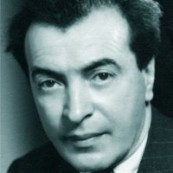
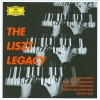
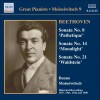
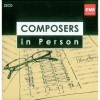
![The Heifetz Collection, Volume 7 [2 CD]](http://static.classicalm.com/repository/disk-cover/small/927-img1316977566109649.jpg)
